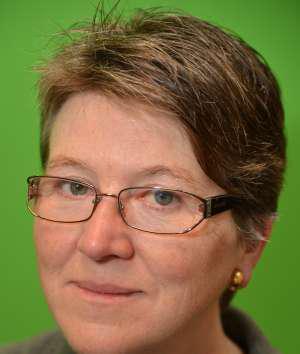The suspension of routine breast cancer screening during covid-19 offers an opportunity to reconsider criticisms of the programme, argues Susan Bewley
 Some unexpected good news has resulted from the NHS having to prioritise the needs of the sick and vulnerable over the fears of the well. In the middle of a global pandemic, we can no longer afford the politically popular luxury of needlessly making the general public unwell through anxiety and overdiagnosis. Routine mammographic breast cancer screening and the AgeX clinical trial—which was designed to generate evidence about extending screening to women even outside the current 50-70 age group—have stopped.
Some unexpected good news has resulted from the NHS having to prioritise the needs of the sick and vulnerable over the fears of the well. In the middle of a global pandemic, we can no longer afford the politically popular luxury of needlessly making the general public unwell through anxiety and overdiagnosis. Routine mammographic breast cancer screening and the AgeX clinical trial—which was designed to generate evidence about extending screening to women even outside the current 50-70 age group—have stopped.
Although it was not obvious from national websites, or in the media, letters, texts, and phone calls have been informing women since mid March that all routine screening appointments are cancelled. Services have since been suspended in parts of Canada, Italy, Scotland, and Australia. Mobile mammography screening vans are parked and silent. Staff are clearing the decks and helping those women already in the system after a positive screen. Once this is done, staff will be redeployed for the Herculean task of constraining coronavirus or keeping other parts of the NHS afloat.
This recognition that breast cancer screening is non-urgent must be applauded, and the general public reassured. It suggests that stopping screening poses little overall danger (and even, by some people’s interpretations, possibly none whatsoever) to women. Anyone with a lump, skin dimpling, or other symptoms who might have an active cancer, should be encouraged to call their GP as usual, as the urgent pathways remain open. Regional breast screening services are telling women that screening is “on hold.” The intention appears to be to resume screening when, and if, the coronavirus pandemic ends. But this is a golden opportunity for the National Screening Committee (NSC) to pause, reconsider criticisms of the screening programme, and evaluate whether to modify a programme that does not impress clinically or cost effectively.
Breast cancer treatments have been revolutionised since screening was introduced in 1987, thus long ago traversing the “sweet spot” between pointlessness (that is, finding illness when no effective treatment exists), through usefulness (when screening adheres to the Wilson and Jungner criteria by spotting early those patients who will do better with available treatment than if they waited until symptomatic), to pointlessness again (treatments for symptomatic cancer are now so good that the balance of benefit:risk in mammographic screening tilts towards its causing excessive harm to the well).
The good news story—that treatment for symptomatic breast cancer nowadays is excellent—has been drowned out by a thirst for “more” searching and resoothing of anxiety. Going “cold-turkey” on screening may be an unexpected, but welcome, way to wean the public off its dependence on searching for diseases that might never have harmed anyone.
Even before covid-19, Mike Richards, the UK government’s chief inspector of hospitals in the Care Quality Commission, had already called for a halt to PSA prostate cancer screening. More, even different, screening is not an acceptable answer to the difficult question for urologists of why prostate cancer death rates have risen during an era of opportunistic PSA screening with ever increasingly numbered multi-needle biopsies used for diagnosis and surveillance.
The NSC can seize the moment to discuss popular myths about screening, especially when presented in the guise of “case-finding.” There is no evidence that “health checks” achieve anything in terms of long term outcomes, barring diverting NHS resources away from looking after those who are actually ill. Let’s leave the more difficult task of improving public health to public health doctors who recognise the need for societal based solutions. We should stand up to vested interests from private healthcare and screening service providers whose profits come with potential health damage. Reducing smoking and alcohol consumption and lowering obesity would do a lot more for the population’s health.
As for those screening programmes that do work and which will survive this crisis, the NSC could set a higher communication standard for decision aids (using natural frequencies, absolute risks, common denominators, spelling out all risks and potential benefits, offering icon arrays, with “doing nothing” as a default in Fact Boxes).
If mammography screening does return post pandemic, it must be reinstituted without any alarmist messaging, pre-booked appointments, reminders and disclaimers, or financial targets for GPs to encourage attendance. We need better processes and an “informed consent” leaflet that makes it entirely clear that it’s a choice—and not necessarily a bad one—to decline.
Susan Bewley is emeritus professor (honorary) of obstetrics and women’s health at King’s College London, and chair of Healthwatch (for science and integrity in medicine). She is a longstanding critic of screening mammography and the science and ethics of the AgeX trial. She has chaired many NICE Guideline Development Groups. Her interests can be found at http://www.whopaysthisdoctor.org/doctor/58/active
Twitter @susan_bewley
Declaration of interests: I have read and understood BMJ policy on declaration of interests and declare none.
